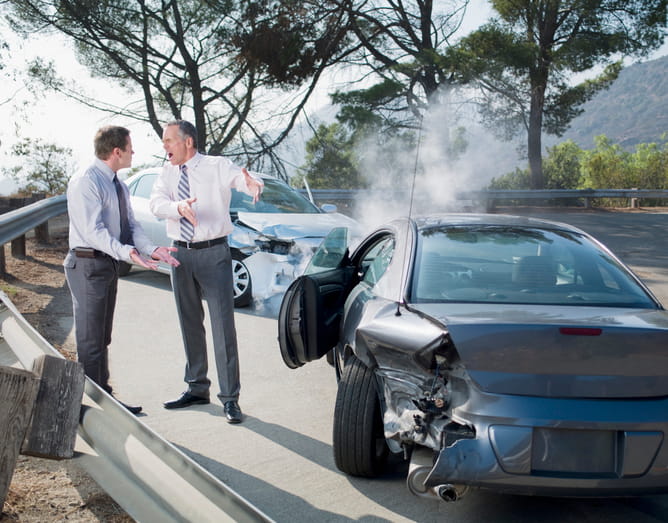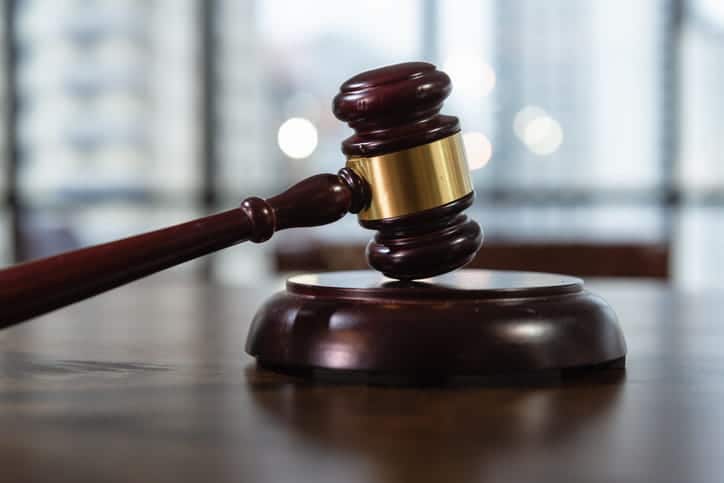Should I Sue After A Car Accident?

In 2021, 36,164 car accidents occurred daily in the U.S. Depending on the severity of the accident and the number of motor vehicles, bicyclists, pedestrians, and passengers involved, these motor vehicle accidents (MVAs) can potentially cause legal, financial, physical, and mental health issues for multiple people.
If you’ve been injured in a car accident, you may not know what to do after your accident. You may wonder about your legal options and whether you should sue after your car accident. There are many reasons to consider a lawsuit, and you may also have reasons you don’t want to sue. However, that doesn’t mean it’s impossible to seek fair compensation. Discuss your situation with a car accident lawyer. An experienced car accident attorney will explain all options so you can make informed decisions after your accident.
If you have been injured in a car accident in Sacramento, let Sette Law fight for you.
The Difference Between Settling A Car Accident Claim And A Lawsuit
You can file an accident claim after the crash. This claim is filed with the at-fault party’s insurance company. The amount you can receive from an accident claim is limited by the driver’s insurance policy, which means you can only receive compensation for what the policy lists in its terms of coverage.
A lawsuit is a legal process that involves suing the at-fault party for damages. There are multiple steps in a lawsuit, and most lawsuits are resolved through negotiations without going to court. Ideally, your attorney and the at-fault party’s lawyer and insurance company will agree to a fair settlement. In 2005, only 4% of personal injury lawsuits went to trial, with the other 96% ending with a negotiated settlement.
Some insurance companies refuse to offer fair compensation. In that case, your lawsuit will go to trial. During the court proceedings, your attorney will present evidence supporting your claim, such as photographs, police reports, witness statements, and medical documents. A jury will deliver a verdict after the trial, and if you win your case, you’ll receive a judgment.
Defendants can appeal the ruling and judgment from a trial, extending the time needed to resolve lawsuits. Some lawsuits take two years or more, while the average time to settle a claim and receive compensation is under 11 months.
Who Can I Sue After A Car Accident?
Suppose you filed a claim with the at-fault driver’s insurance company but could not reach a fair settlement. You can file a lawsuit at that point, but your suit isn’t against the insurance company. You will typically file your suit against the at-fault driver. However, in some circumstances, you may file against a business.
At-Fault Driver
The at-fault driver is the driver deemed responsible for the accident. The police may determine who was at fault during their accident investigation. Fault typically stems from the driver’s negligence, which means they failed to act in a responsible manner that would have prevented the accident. Causes of negligence include distracted driving, illegal actions, and reckless driving. Consequently, anything from taking their eyes off the road to eat food to texting on their cell phone to tailgating could be reasons for a driver to be found at fault.
California’s comparative negligence laws allow drivers to seek a percentage of their total compensation from any driver considered partially at fault for the collision. Consequently, you may file lawsuits against multiple drivers if several drivers were responsible for the crash.
Businesses
Suppose an employee driving a company vehicle failed to stop at a red light and crashed into your car. The accident investigation concluded that the company vehicle’s driver caused the collision.
Your attorney can subpoena maintenance records. Suppose they learn that the company knew there was a recall for faulty brakes but did not get the brakes replaced. In that scenario, the company’s negligence directly contributed to the accident, and you may have grounds to sue the business that owns the vehicle.
Reasons Why You May Consider Filing A Lawsuit After A Car Accident
There are many reasons to file a lawsuit after a car accident, including the following:
- Failure to negotiate a settlement: Insurance companies want to limit the amount they’ll pay after an accident. Sometimes, they refuse to negotiate a fair settlement amount, forcing you to file a lawsuit to seek fair compensation.
- Refusal to pay: Insurance companies may not agree their client was at fault and may refuse to pay your claim
- Disputes over percentage of fault: Suppose multiple drivers were found at fault for the accident. Their insurance companies may dispute their percentage of fault, making it impossible to settle.
- Insufficient insurance: In 2022, 17% of California drivers drove without insurance. You must sue drivers without insurance or enough insurance to cover the damages and recover the compensation you deserve.
You may also have to file a lawsuit due to the severity of your injuries or to seek the maximum compensation available.
Severity Of Injuries
Suppose you suffered life-altering injuries in a car accident due to the at-fault driver’s negligence. An insurance claim is unlikely to provide total compensation for the extensive medical treatment and costs you’ll incur because of your injuries. Typical car accident injuries include the following:
- Broken bones
- Burns
- Internal bleeding
- Lacerations
- Organ damage
- Scarring
- Spinal cord injuries (SCIs)
- Traumatic brain injuries (TBIs)
- Whiplash
Organ damage could result in organ loss or a transplant. TBIs can cause permanent brain damage. Some people with TBIs may need to retrain for another career or may be unable to work. Some may need assistance with their personal care.
SCIs can cause temporary or permanent paralysis. Burns and scarring can cause severe disfigurement, which can impact a person’s quality of life and ability to stay in some occupations.
Fair Compensation
Car accident victims seek economic and non-economic damages that cover the financial, physical, and emotional impact.
Economic damages are also called monetary damages and cover accident-related expenses, such as:
- Burial costs
- Childcare bills
- Cost of job training
- Cost of relocation
- Funeral expenses
- Medical bills
- Personal care costs
- Property damage
- Transportation costs
The accident’s toll on you is the grounds for non-economic or non-monetary damages. Justification for these damages includes the following:
- Impact on relationships: You can justify non-economic damages if your relationship with your spouse or partner ends because of the accident or you’re unable to enjoy physical intimacy after your accident
- Loss of quality of life: You may not be able to engage in your favorite activities or may be isolated because of disfigurement or mental health challenges that prevent you from enjoying life to the fullest
- Mental health issues: Car accident victims may struggle with anxiety, depression, grief, post-traumatic stress disorder, phobias, and other mental health challenges
You may fight for punitive damages if the at-fault driver’s gross negligence caused your injuries. Gross negligence applies when a driver engages in reckless conduct they know poses a safety risk to others.
Why You May Not Want To Sue After A Car Accident
Reasons you may not want to file a lawsuit are complex and include the following:
- Personal convictions: You may have personal beliefs that dissuade you from taking legal action
- Publicity: Suppose you’re in an accident with a celebrity, or your accident involves a work vehicle from a well-known company. Suing the celebrity or business could attract media attention, disrupting your life for months or years.
- Relationship to the at-fault party: Suppose your family member or friend caused the accident. You may not want to sue someone you know and jeopardize those relationships. You may also be under pressure from others who don’t want you to take legal action because they want to avoid conflict.
An Experienced Car Accident Attorney Will Help You Consider All Sides Of A Possible Lawsuit
A car accident attorney will explain your options, ensuring you know the benefits of legal action and the potential risks if you don’t file a lawsuit. Hiring an attorney is the best way to protect yourself from false allegations and ensure you receive fair compensation. Your attorney will take the following steps:
- Investigate the accident
- Interview witnesses
- Locate evidence
- Help calculate fair damages
- File legal paperwork
- Handle settlement negotiations
If You Have Been Injured In A Car Accident, Let Sette Law Fight For You

Sette Law is ready to fight for you after your Sacramento-area car accident. We will fight for compensation for your expenses, physical injuries, and pain and suffering. We’re ready to seek justice on your behalf and protect your rights while resolving your car accident lawsuit.
Get the compensation you deserve with Sette Law.
Sources:
Burgoyne, J. (2023). 15 Common Car Crash Injuries.
Facts + Statistics: Uninsured motorists. (2024).
Lee, C. (2024). Will My Car Accident Claim End in a Settlement?
